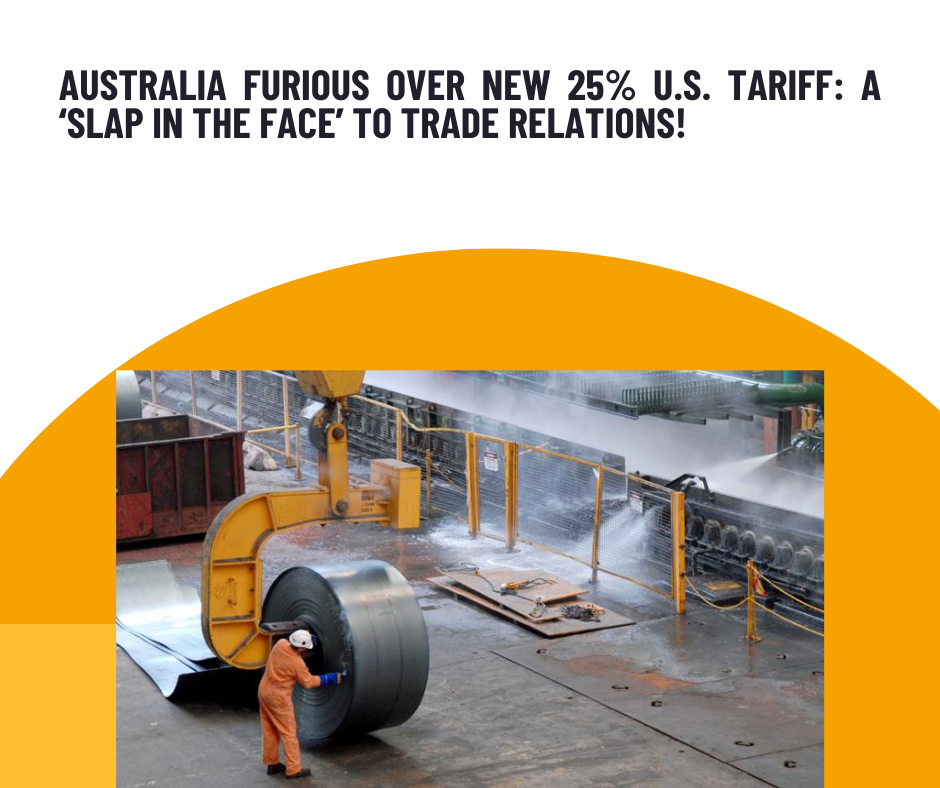
The Australian Industry Group (AIG) has criticized the proposed 25 percent tariff on all U.S. imports of steel and aluminum, calling it a “slap in the face” to both the industry and the strong political and economic relationship between the two countries. AIG’s CEO, Innes Willox, expressed concern that this move undermines the close ties between Australia and the U.S., especially as Australia had just made significant investments, including billions of dollars for the AUKUS submarine deal. Willox emphasized that the tariff proposal risks damaging one of Australia’s key trade and investment partnerships, urging the government to prioritize reversing the decision.
Finance Minister Katy Gallagher acknowledged the potential impact of the tariffs but said Australia was in a “strong position” after months of positive engagement with the U.S. administration. She stated that both she and Treasurer Jim Chalmers would closely monitor the situation, reaffirming that the government was actively engaging with the Trump administration and highlighting the mutually beneficial trade relationship between the two countries.
Shadow Minister for Trade and Tourism, Kevin Hogan, voiced concern over Australia’s $550 million aluminum and steel industry exports, pointing out that the government had been blindsided by the announcement. He also questioned whether Deputy Prime Minister Richard Marles had been aware of the tariff proposal during his recent visit to the U.S. and whether negotiations to secure Australia’s exemption were pursued.
The tariffs were first introduced during the previous Trump administration, but Australia was exempted after negotiations led by then-Ambassador Joe Hockey. The AIG had hoped that discussions under the current Trump administration would yield similar outcomes, but it now appears that those efforts were unsuccessful. Willox described the tariff imposition as a significant blow to Australian industry and the strong economic and security relationship between the two nations, especially considering the existing free trade agreement.
In response to the looming tariffs, Bluescope, a major Australian steel producer, which has expanded significantly in the U.S., emphasized its ongoing investments and adherence to trade agreements. The company, now the fifth-largest steel producer in the U.S., has spent $2 billion on acquisitions and expansion in the U.S. over recent years. Bluescope expressed confidence that its operations would continue in accordance with trade rules, as they await further details from the U.S. administration. Meanwhile, the Australian stock market has reacted positively to the tariff news, with Bluescope shares rising 1.7 percent.